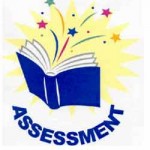Creating the quiz in Moodle and examining the assigned reading was a very illuminating experience for me.
I was reminded that assessment is not just an activity of judgement but rather an act that has the potential to encourage students to become more engaged with the learning task and become immersed in the content (Gibbs & Simpson, 2004). The term “Assessment for Learning” and formative assessment has been floating around the schools for a few years now and have been encouraging teachers to provide prompt and meaningful feedback through teacher assessment, and to create opportunities for peer assessment and self-assessment to help learning (Chickering & Gamson, 1996). For this quiz, however, I focused on establishing ways to support self-assessment by using the affordances provided by Moodle.
My biggest challenge was to provide embedded, detailed and meaningful feedback for all objective questions in the quiz – not only to guide incorrect answers but to also confirm and extend understanding. I believe that at the time when a person is focused on certain concepts, a few extra hints might reinforce their existing schema or help reorganize it. Thus I attempted to provide for student-content and student-teacher interactions (Anderson, 2008) within the quiz by embedding feedbacks and hints wherever possible.
If feedback is provided, then by default opportunities should be provided to apply them in the learning process. For this I debated if I should allow for multiple trials on a quiz with or without penalty. So while for this quiz I did penalize the students for retries as I wanted to see how this option works, for my students I would definitely remove this insecurity of being judged during the learning process.
However when setting up the essay questions, the above mentioned affordances became defunct! I was not able to provide immediate feedback or prompts for these questions. Does that mean that essay question is not a quiz format one would use for formative assessment? While the immediate response to this question was “yes”, I soon realized I was wrong. While the quick MCQ and short answers are content based, the essay questions provide a platform for the students to showcase higher level concepts like inferences, analysis, and synthesis. So there is a definite need for such questions for which the responsibility then lies on the teachers to mark them and quickly return to the students with meaningful feedback. I question the effectiveness of electronic feedback here [regarding essay questions] with my young students. As some time has passed since the activity, I think a face to face meeting to provide feedback will be more useful for them.
A problem I have with the content based “quick” online quizzes is that I am unable to “see” the thinking of my student as they arrive to that erroneous or correct answer. This information, I think, is very crucial as it informs teaching! How can I guide my student if I cannot see where they need help. It was exciting to see Moodle takes care of this issue! As an assessor I was able to see all the attempts made by the students and see if the hints had been effective in guiding them.

In regards to actually creating the quiz, I found Moodle to be a very user friendly tool and I was able to make the quiz through a lot of trial and error, Google searches, you tube videos and of course peer-support. In the end I am very happy with the way assessment can be provided through Moodle. It confirms what Jenkins (2004) said about CAA. It provided for student-centred skills and learning by allowing for repeatability, immediacy of response to the student, increased the diversity of assessment, and encouraging students to take responsibility for their own learning.
Anderson, T. (2008). Towards a theory of online learning. In: Anderson, T. & Elloumi, F. Theory and Practice of Online Learning. Athabasca University. Accessed Online 9, June, 2009, from http://www.aupress.ca/books/120146/ebook/14_Anderson_2008_Anderson-Online_Learning.pdf
Gibbs, G. and Simpson, C. (2005). Conditions under which assessment supports students’ learning. Learning and Teaching in Higher Education. Accessed Online 22, June, 2009, from http://www.open.ac.uk/fast/pdfs/Gibbs%20and%20Simpson%202004-05.pdf
Jenkins, M. (2004). “Unfulfilled Promise: formative assessment using computer-aided assessment.” Learning and Teaching in Higher Education , i, 67-80. Accessed online 17 March 2009 http://www.glos.ac.uk/shareddata/dms/2B72C8E5BCD42A03907A9E170D68CE25.pdf.

